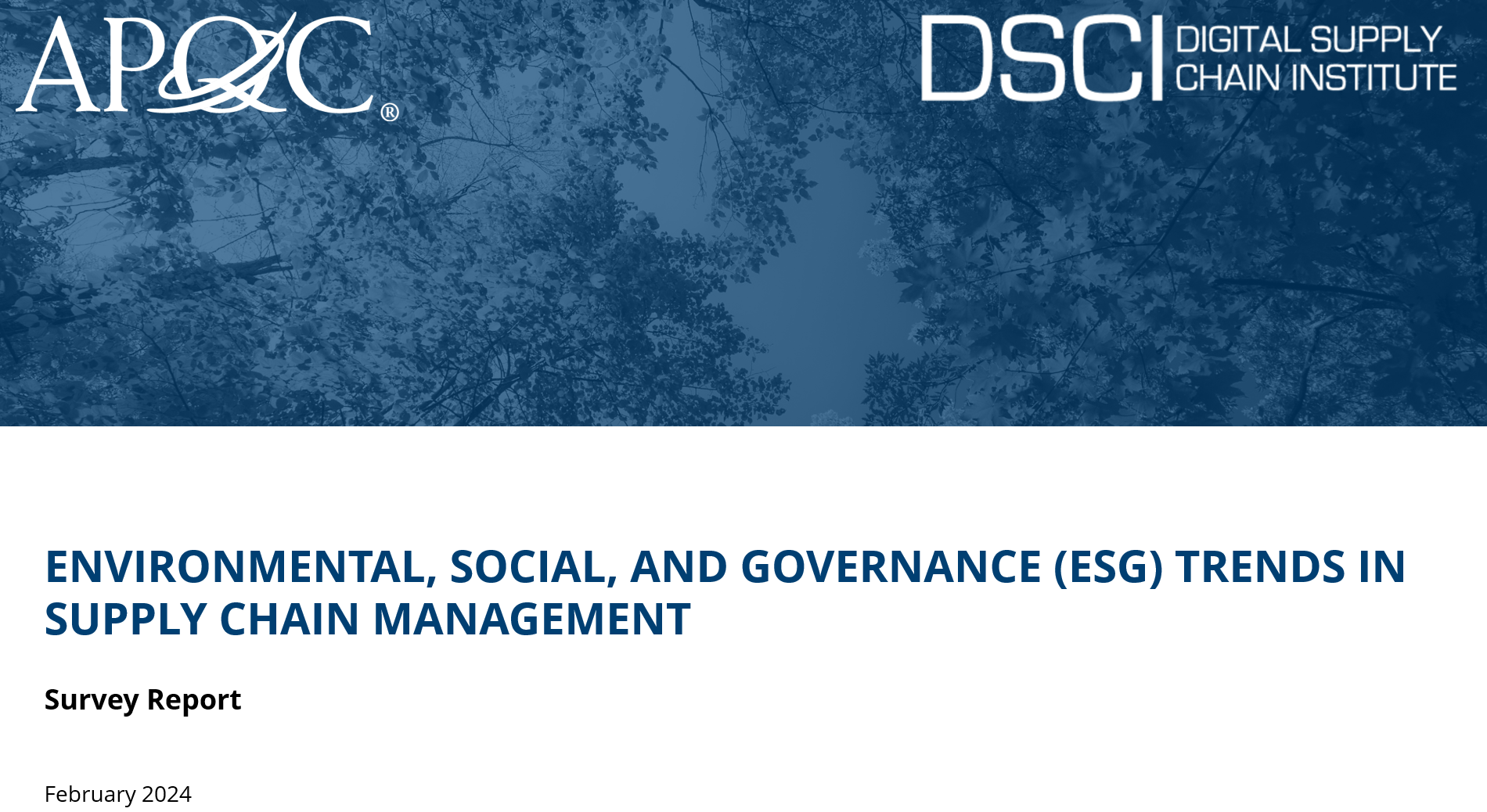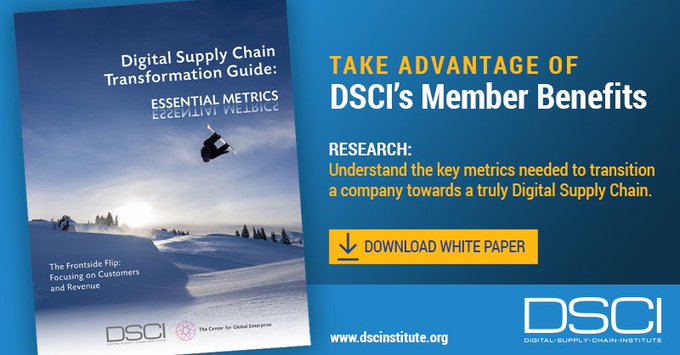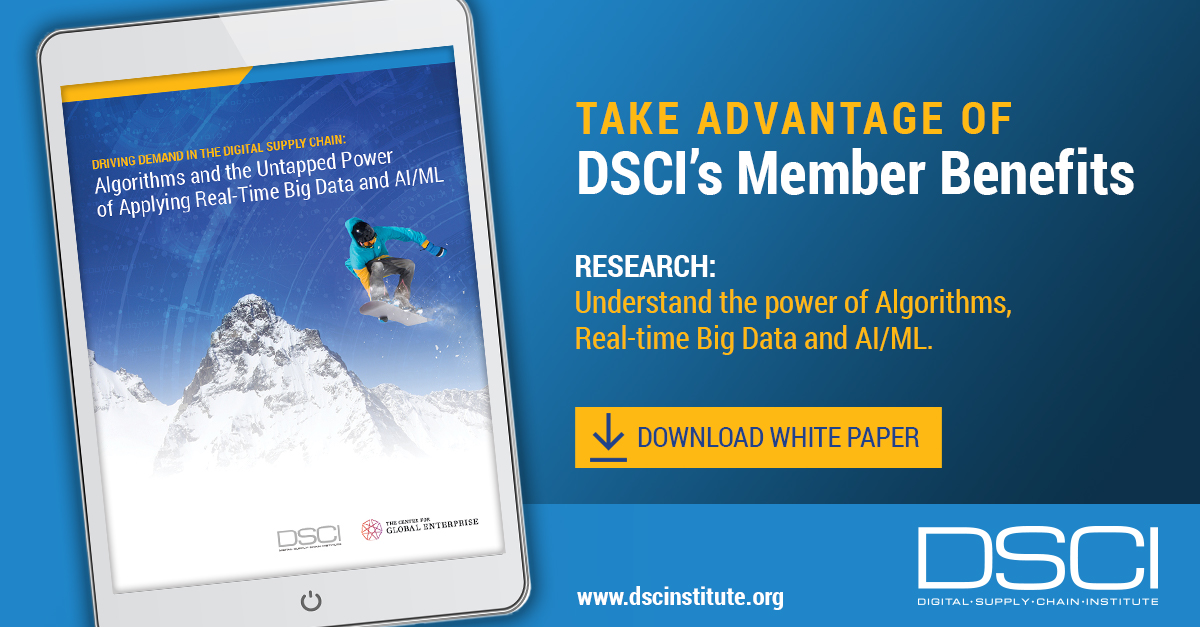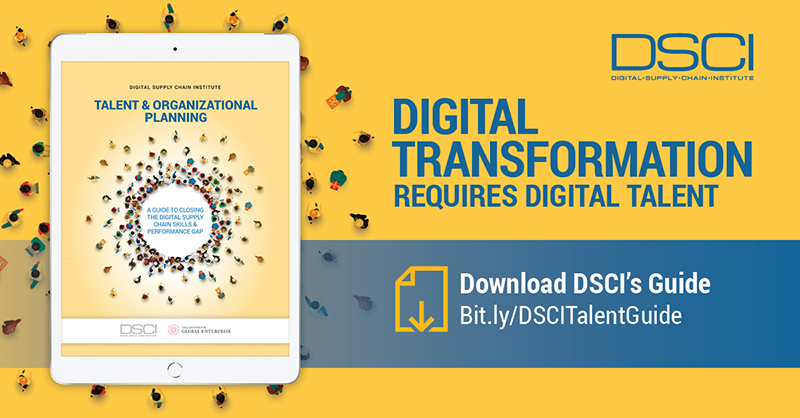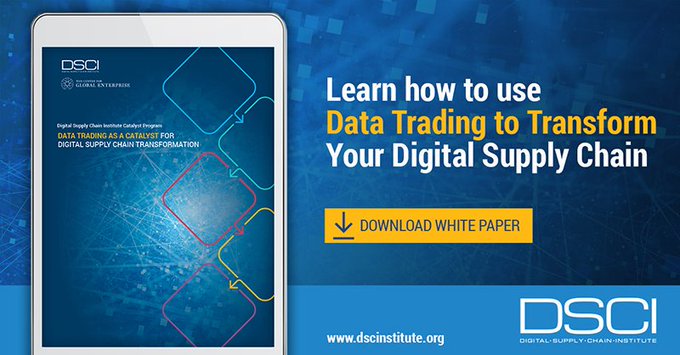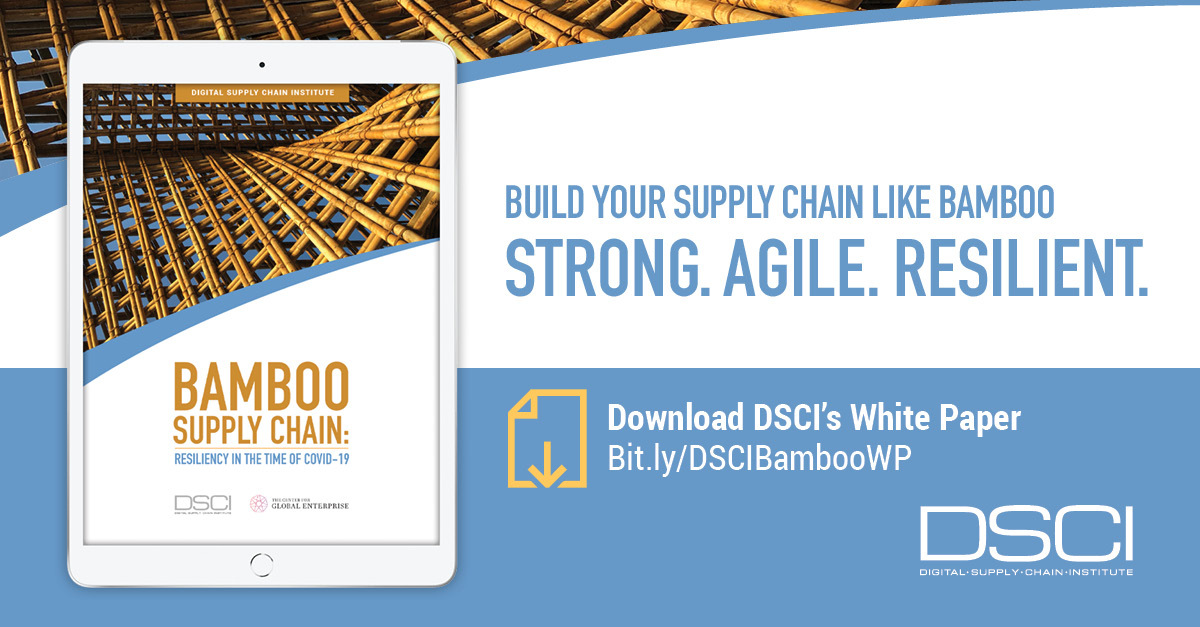Whitepapers on Supply Chain Management
Advancing Global Trade Through Open-Source e-Bill of Lading
The journey to transforming to a digital supply chain has many steps, including new ways to manage Demand, People, Technology, and Risk. Without the right metrics necessary, changes won’t happen.
The 2024 State of ESG in Supply Chain Management Survey Report
From December 2023 to January 2024, the Digital Supply Chain Institute (DSCI) and APQC jointly conducted a survey to gather insights from supply chain leaders on the role of Environmental, Social, and Governance (ESG) factors in managing their supply chains and relationships with suppliers.
The 2023 DSCI New Customer Survey: Unveiling Customer Trends
Dive into the transformative landscape of customer behavior with our latest research, the “2023 DSCI New Customer Survey”. As the digital age progresses, it’s crucial to grasp the evolving preferences, values, and priorities of customers. Our comprehensive survey offers a deep understanding of what today’s customers genuinely desire, from heightened supply chain awareness to the
Digital Supply Chain Performance Metrics
The journey to transforming to a digital supply chain has many steps, including new ways to manage Demand, People, Technology, and Risk. Without the right metrics necessary, changes won’t happen.
Driving Demand in the Digital Supply Chain: Algorithms and the Untapped Power of Applying Real-Time Big Data and AI/ML
After extensive research and consultation with our DSCI members, Global Expert Group, industry leaders, practitioners, and academics, we developed this white paper to help senior supply chain executives understand the power of Algorithms, Real-time Big Data and AI/ML.
How to Benefit from Blockchain Solutions and Respect GDPR
Blockchain and Distributed Ledger Technologies (DLT) have emerged as an effective enterprise transformation tool. They provide capabilities beyond traditional databases to share data and manage workflow throughout an enterprise and across its ecosystem of customers, partners and suppliers in a trusted manner without central control.
Algorithm Council: The Missing Management Piece for Today’s Companies
Fueled by emerging technologies, including artificial intelligence (AI), machine learning (ML) and the Internet of Things (IoT), supply chain leaders across the world are racing to harness this data and build algorithms that can increase their company’s market share, grow revenue, reduce risk and fine-tune operations.
Digital Transformation Talent & Organizational Planning Guide
Talent and organizational planning are key drivers of success in leading and implementing a digital supply chain transformation. Given global supply chain disruptions, organizations must consider how these changes impact talent and skills gap issues.
Data-Trading: A New Approach To Maximizing The Value Of Your Data
Companies are drowning in data. Yet, one of the major hurdles many companies face in transforming to a Digital Supply Chain is their ability to get precise data from customers and suppliers — and to fully realize the value of the data they have.
Digital Supply Chain Catalyst Program
DSCI has developed an action plan for how to accelerate your transformation with the “DSCI Catalyst Program”. This whitepaper introduces a unique new data trading framework to help you obtain the critical data you need.
Bamboo Supply Chain: Resiliency in the time of Covid-19
Companies need to build Digital Supply Chains that are as strong, adaptable, and fast-growing as bamboo. But we have been designing supply chains as if out of steel, and the COVID-19 pandemic has shown us that a rigid supply chain is vulnerable to disruption.
Change Leadership in the Digital Era: A New Way to Accelerate Supply Chain Transformation
Change leadership in Fortnite is about three essential things that could make your supply chain organization more responsive to change, more resilient, more effective, and more efficient: shared leadership, benefits-driven collaboration, and rapid data-driven decision-making.
- 1
- 2



